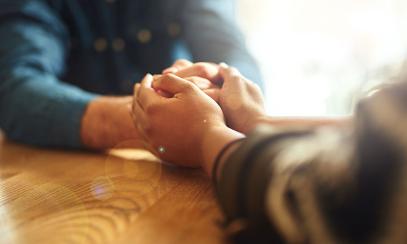Dear Fr. Joe: What is the role of conscience?
The role of conscience is a big one, I assure you. Let’s get right to it.
Conscience is two words stuck together: Con meaning “with” and science meaning “knowledge.” Conscience is the knowledge that God put in you about what’s right and what’s wrong.
There are, I think, a lot of mistakes about the role of conscience, so let’s take a close look at what the church says and what she doesn’t say about conscience.
In the Vatican II document Gaudium et Spes, the church defines conscience in this way:
In the depths of his conscience, man detects a law which he does not impose upon himself, but which holds him to obedience. Always summoning him to love good and avoid evil, the voice of conscience when necessary speaks to his heart: do this, shun that. For man has in his heart a law written by God; to obey it is the very dignity of man; according to it he will be judged. (cf. Rom. 2:15-16) Conscience is the most secret core and sanctuary of a man. There he is alone with God, whose voice echoes in his depths. (cf. Pius XII, March 23, 1952: AAS (1952), p. 271) In a wonderful manner conscience reveals that law which is fulfilled by love of God and neighbor. (No. 16)
That is powerful – let’s take it step by step.
First of all, we see that conscience is a law, given by God. You and I are not the source of this law; God is. Law is an important thing; breaking it is very serious.
The second thing we see is that God planted this conscience in our hearts and that this conscience will speak to us when we need to focus on our call to love what is good and avoid what is evil. That is a simple, powerful statement – think about it for a bit.
The last thing is that our conscience is connected to our dignity – it is our secret, holy place to be with God. Our intimacy with God in our conscience is part of what makes us so special, so elevated in our dignity.
See, this is the powerful thing: God doesn’t just call us to do what is right; he plants in our heart the ability to know what is right. To top it all off, God gives us the Holy Spirit’s gift of fortitude to follow up on what we know.
Now, it’s not enough for us to simply have this gift – God wants us to form that gift. It is way too easy for us to deceive ourselves in our sin into pretending that what we want is a good thing, even when it isn’t.
How do we form our conscience then? Let’s get right to the catechism:
The education of the conscience is a lifelong task. From the earliest years, it awakens the child to knowledge and practice of the interior law recognized by conscience. Prudent education teaches virtue; it prevents or cures fear; selfishness and pride; resentment arising from guilt; and feelings of complacency, born of human weakness and fault. The education of the conscience guarantees freedom and engenders peace of heart. In the formation of the conscience, the Word of God is the light for our path. (cf. Ps. 119:105) We must assimilate it in faith and prayer and put it into practice. We must also examine our conscience before the Lord’s cross. We are assisted by gifts of the Holy Spirit, aided by the witness or advice of others and guided by the authoritative teachings of the church. (CCC 1784-1785)
So, we form our conscience in the following ways:
Reading the Word of God –
You know those “WWJD” bracelets? We don’t have to guess the answer to that question. When we read God’s word, we learn about God’s heart and commands.
Prayer and acting on what we hear in prayer – We need to spend that quiet time each day in God’s presence, growing in our relationship with the Lord. When we do this, our minds and hearts grow more like God wants them to be.
Examination of conscience – This is a big one. At the end of the day, we look at what we said and what we did, and we hold it up to the light of God’s mercy. We have to be fearless here and trust that we can receive God’s mercy.
Call on the Holy Spirit – We need divine help to do what is right. If I need to explain this one, please let me know. I need more perfect people in my life!
Advice of others – We can fool ourselves easily. People around us who really love us will nail us when we cross the line. We have to check with people who will tell us the truth no matter what.
Guided by the church – This is one we need to be really attentive to. God speaks through the Catholic Church to teach us the truth. Too many times, I meet people who dismiss church teaching because it is hard. We cannot do that! Before we disagree with the church, we better make sure that we read what the church actually says and why she says it. When she says “no” to certain behaviors or attitudes, the church is saying “yes” to our dignity.
Ultimately, that is the role of conscience: to protect our God-given dignity and to keep us from being consumed by our own desires and hungers. God loves us and loves us enough to call us to freedom.
Let’s listen to the voice of our consciences and follow them with love.
Enjoy another day in God’s presence!



